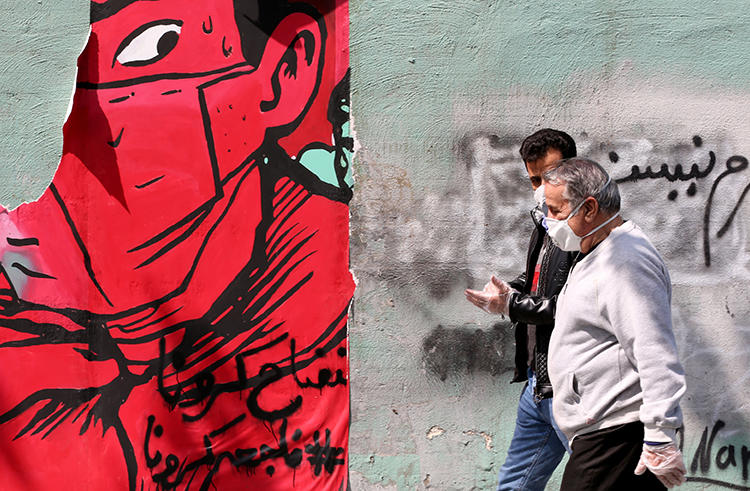Since February 2020, two medical schools in Iran have filed criminal suits against at least two journalists over their coverage of the COVID-19 pandemic in the country, according to reports by the International Federation of Journalists and the Human Rights Activists News Agency, two exile-run outlets that cover news in Iran.
In February, the state-run Golestan University of Medical Sciences filed a suit against Elahe Ramezanoour, a reporter who covers health for the Hamshahri newspaper and runs a news channel on Telegram that also focuses on health issues, according to the International Federation of Journalists’ report.
The school filed a second suit against Ramezanoour in March, according to that report. That report states that both suits are related to Ramezanoour’s coverage of the pandemic, but does not list any specific charges against her.
She is awaiting trial in the first case, according to that report. In an April 16 post, Ramezanoour’s Telegram news channel “Messengers of Health” confirmed that she had faced complaints from the school, but did not provide detail on the specific charges or the dates that they were filed.
On April 7, the state-run Kermanshah University of Medical Sciences filed a lawsuit against Shahram Safari, a freelance Kurdish journalist who also runs a local news channel on Telegram called Rawezh Press, alleging that his coverage of the COVID-19 virus, particularly his statistics on the number of positive cases, was inaccurate, according to the International Federation of Journalists.
According to the Human Rights Activists News Agency, Safari was summoned to a local court and charged with “spreading lies and disturbing public opinion,” and posted bail and was released until his trial date is set by the court.
If convicted under that charge, Safari could face between six months and two years in prison, according to Article 698 of Iran’s Islamic Penal Code. If convicted of spreading lies and disturbing public opinion with the intent to harm the ruling system in Iran, he could also be banned from working as a journalist and face exile or a ban from leaving Iran for two to three years, and deprivation of civil rights for five years, according to the penal code.
CPJ emailed both universities for comment, but did not immediately receive any responses.
